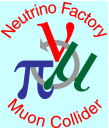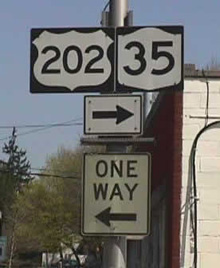 | Monday, July 24, 2006 |
|
Monday, July 24
Tuesday, July 25
Click here for a full calendar with links to additional information.
|
|
|
Secon Level 3 |
|
Monday, July 24 -Minestroni -Chicken & Mushroom Cheese Steak -Baked Chicken Enchiladas -Pot Roast -Garden Turkey -Assorted Slice Pizza -Szechuan Green Bean w/Chicken The Wilson Hall Cafe accepts Visa, Master Card, Discover and American Express. |
|
Wednesday, July 26
Thursday, July 27
Chez Leon Menu |
| Fermilab Today is online at: http://www.fnal.gov/today/ Send comments and suggestions to today@fnal.gov Fermilab Today archive Hurricane Relief Page Fermilab Today PDF Version Fermilab Result of the Week archive Fermilab Safety Tip of the Week archive Linear Collider News archive Fermilab Today classifieds Subscribe/Unsubscribe to |
|
|||
|
For more than a decade, physicists have searched for a way to achieve lepton collisions above 1TeV. In light of recent technical and conceptual developments, Fermilab Director Pier Oddone has charged a new task force with exploring the possibility of a muon collider, which theoretically has the potential to bring lepton collisions into the terascale and beyond.
"Lepton collisions above 1 TeV are likely to be a big part of the future of particle physics and this is one possibility for doing that," said Steve Holmes, Associate Director for Accelerators. Discussion of a muon collider at the Snowmass '96 conference found the concept to be technically daunting, but new advances in cooling methods and magnet design have sparked renewed interest. "The greatest challenge we face is how to 'cool' or focus the beam to maximize the luminosity," said Steve Geer, co-leader of the new task force with Vladimir Shiltsev. Two types of magnets must be developed: a helical solenoid, which can perform six-dimensional cooling, cooling both the particle's position and momentum in three dimensional space; and a final focusing magnet, which will need a field strength of about 50 Tesla, or some six times the strength of LHC magnets. Plans for a preliminary cooling channel design concept, cooling channel R&D and component developing and testing are due by September 2006. Subsequent reports on research and testing will be due in September 2007, and the design concept will be revised in 2007 and again in 2008. R&D efforts planned for the ILC may also be useful: while the manner of providing collisions between
muons and anti-muons is different than between electrons and positrons, the
technology needed for accelerating on the beams could be the same. "We have good new ideas and good people are available. The time is right," said Shiltsev. "We will see just how realistic the future of this technology is."
|
|
|
Science, July 21, 2006:
NSF Reopens Competition for Site to Build Underground Lab
The long, strange quest to build a U.S. underground lab has taken another unexpected turn. A year ago, the National Science Foundation (NSF) announced that only two locations remained in the running to house the proposed Deep Underground Science and Engineering Laboratory (DUSEL)--which would conduct experiments in particle physics, geology, microbiology, and other fields (Science, 29 July 2005, p. 682). But last month, NSF reopened the site competition to all comers. The reversal was prompted by an appeal from a losing group, but that group has now decided not to reapply.
|
| Attentiveness | ||
After repeating a task, people develop an expectation about how things work. They establish "mental shortcuts" to selectively block out unnecessary information. This provides the benefits of reducing stress and improving efficiency. However, the shortcuts can be imperfect and information needed to prevent accidents may be blocked as well. This can easily lead to difficulty if something unusual occurs. On occasion, people will even ignore obvious signs that things are going wrong, and they behave, incorrectly, as if all is normal. Unfortunately, urging people to simply "pay more attention" seldom has a significant or lasting effect. There are three factors to consider in managing worker attentiveness:
|
|
July 19 - 21 - Three stores provided 26 hours and 33 minutes of luminosity - Recycler low-level RF problem - Booster heat exchanger clogs - Store 4839 aborted due to RF trip - Store 4841 aborted due to ramp trip - Machine Reports
Read the Current Accelerator Update |
|
Why Work at Fermilab? The Employment Department is conducting an employee survey to find out why you enjoy working at Fermilab. Some of your answers will be posted on the Employment website as another avenue to help attract candidates to the lab. Click here to start the survey. It should take you about 2-3 minutes to complete. |

